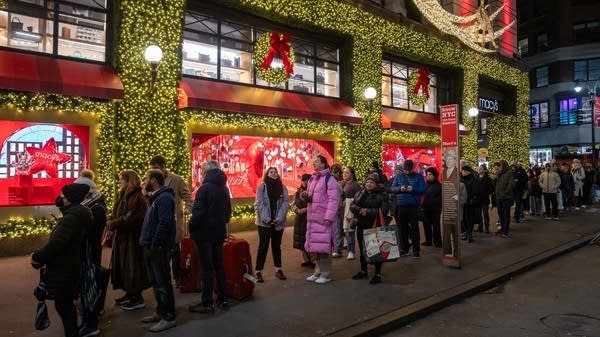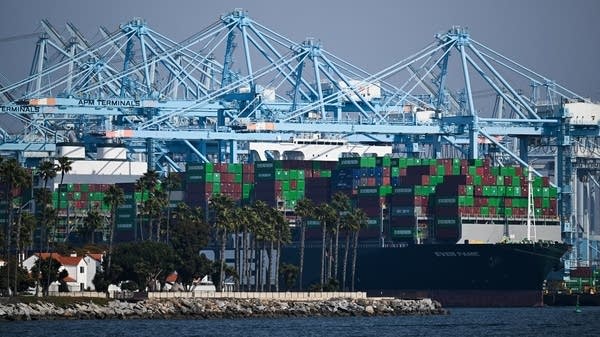Why do companies still use 1-800 numbers?
These numbers can build trust with consumers, and those who still have landlines don’t have to pay.

This is just one of the stories from our “I’ve Always Wondered” series, where we tackle all of your questions about the world of business, no matter how big or small. Ever wondered if recycling is worth it? Or how store brands stack up against name brands? Check out more from the series here.
Listener Phil Emanuel from Austin, Texas, asks:
I still occasionally see an 800 number listed as "toll-free." Or at the hotel they list "free long distance calls" as a feature of the room. Are "toll-free" numbers still a thing? In the age of digital/cellular phone service, do 800 numbers matter?
Toll-free numbers might seem like a relic of the past, but for 1-800-Flowers.com, their telephone number is still part of the company’s DNA.
The popular floral retailer, which was founded in 1976, included its telephone number as part of the company name in the 1980s. Back then, having a 1-800 number made it easy for customers to remember and it shifted costs from the consumer to the company, said Jim McCann, the founder of the company.
Over the decades, 1-800-Flowers has expanded by adding retail stores and a website, but the phone number remains. “We still get tens of thousands of calls every day on the 800 number,” McCann said.
The company also continues to use that number in its branding just to help make things a bit more convenient for customers.
“Whenever we print our name or use our logo, our attitude is: ‘Why not tell you several little ways that you can reach us?’ Our stores are called 1-800-Flowers,” McCann said. “It’s become much more than a phone number, and we've been fortunate enough that it's become a really well-known brand.”
Small and big businesses alike, government agencies and nonprofit charities continue to see value in toll-free numbers. They’re an important part of a company’s business model because they’re easy to remember, many people still use a landline phone and they can bolster a business’ legitimacy, experts told Marketplace.
Consumers reflexively gravitate toward toll-free numbers. “If a company gives you two numbers, and one is a toll number and one is a toll-free number, almost everybody chooses the toll-free number, even though they don't pay for it,” said Roger Entner, a telecom analyst with Recon Analytics.
While the number of landline owners has dropped precipitously in recent decades, almost a quarter of adults still use landlines.
“I think there is still a need for toll-free calling. Maybe over time that will change, but nobody wants to be charged for a customer service call,” said Stephen Minnig, an adjunct professor at Georgetown University.
Financial service companies, health insurers and governmental groups also want to build trust with people who are sharing sensitive information, and an 800 number can show they are legitimate, Minnig said.
“You’ve got a problem with your credit card, you call their 800 number to talk to a customer service representative,” Minnig said. “That's traditionally how things have gone.”
Customers, especially older ones, might find it more comfortable to dial a 1-800 number as opposed to emailing somebody or trying to find out information by browsing the internet, Minnig added.
Signaling that you’re a legitimate company is especially important for franchises, Entner said.
If you’re calling to request a local plumber, you might be reluctant to call a New York number if you live in California, he said.
1-800 numbers also show that the company cares, since they’re from a time when toll-free numbers ensured you wouldn’t get charged, he explained.
Not all companies think it’s worth maintaining a toll-free number. The low-cost airline carrier Frontier got rid of theirs in 2015 as a cost-cutting measure, saving the company about $1.9 million a year.
Businesses might pay between 5-10 cents a minute for 1-800 calls, Entner said.
But the expenses are worth the trade-off for companies like 1-800-Flowers.com.
“It costs a lot because we have to staff it, and that's thousands of people,” McCann said. “But obviously we've done the calculation, and it's an expense we don't have a choice on, because so many of our customers want to access us that way.”
A customer might be in the back of their taxi and they don’t want to pull up their app, so they’ll just dial in, McCann said.
The line will stay as long as people keep calling.













